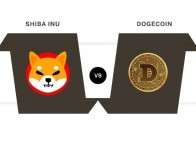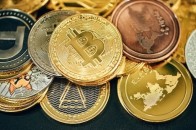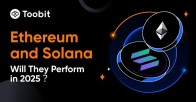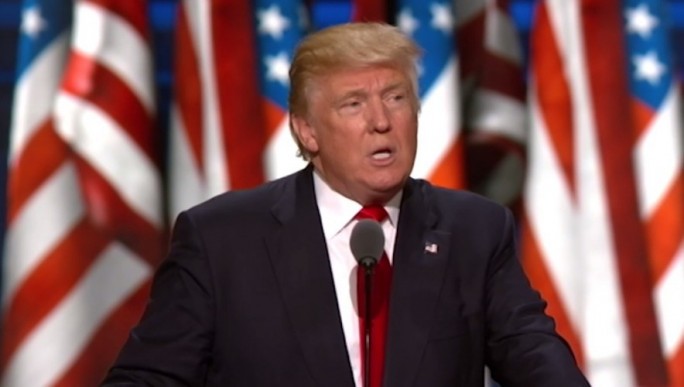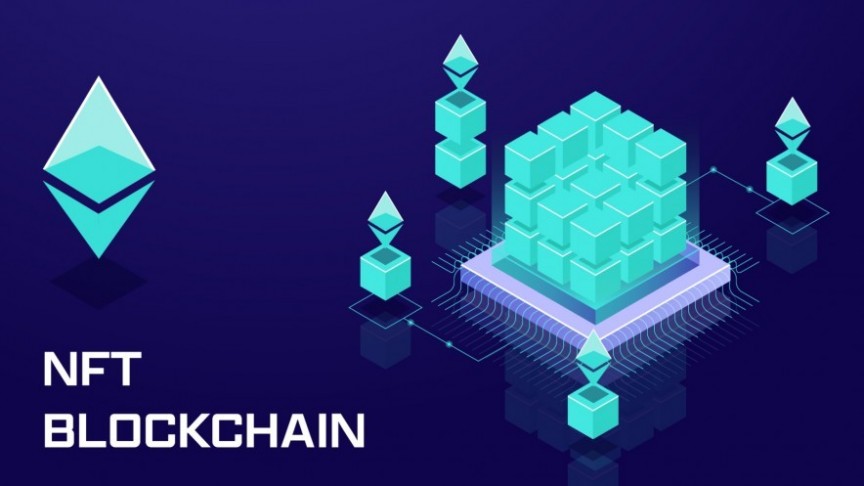
How to Build an NFT blockchain: A Complete Beginner's Guide
Oct 13, 2021, 3:38PMNFTs are unique or rare collectible crypto assets. They can represent real estate or art, or proof of ownership of physical items.
NIKE, for example, has created a system called "Cryptokicks," which allows customers to buy shoes linked to an NFT. The NBA is using NFTs to represent video clips of the greatest plays in US basketball history and selling them through the NBA Top Shot platform.
Another example of NFTs is the WePlay Collectibles, which are for people who want to be part of Esports events and show that they like players and talent in a different way, as well as merchandising. The WePlay Collectibles are part of a platform, where you can buy items with NFT technology - both digital and physical. They are rewards and items associated with a specific tournament.
What is an NFT and how does it work?
NFT stands for Non-Fungible Token. Technically any unique digital asset linked to the blockchain can be classified as an NFT or non-fungible token. NFTs or non-fungible tokens work as a digital certificate of authenticity for digital objects and physical objects. In real life - classic works of art, fine art, antique goods and other historical items are traditionally sold at auctions with a receipt certifying that they are original items.
NFTs work in exactly the same way, but for digital items or files. They allow digital formats such as PNG, JPG, GIFs, MP3, MP4, and any other digital file format to be certified as unique and collectible with real cash value. NFTs can be bought or acquired, collected, sold and traded in the same way as physical items. Thanks to blockchain technology, transaction history data, the creator and new owner can be tracked and verified by anyone anywhere in the world in real-time.
The process of turning a digital file into an NFT is called "minting" - which refers to the act of creating a new token on the Ethereum Blockchain that will be attached to the digital content. When an artist or digital content creator creates a new NFT, they can program royalties between 5-10%, which they can receive in commission whenever their work is sold on the secondary market or to a new collector.
NFT tokens are stored in digital wallets, which also have their own unique addresses. Since each NFT has a unique ID, it is connected to a wallet address on the blockchain - which is a large decentralized database or distributed ledger, so that anyone anywhere in the world can verify digital ownership in real-time.
Can I create my own NFT?
Yes, literally any Internet user can create NFTs. You can turn any digital file such as painting, drawing or digital art, image, photo, GIF, music, tweet or text document into NFT and list it for sale on NFT marketplaces.
What do I need to start creating NFTs?
You don't need to be a programmer or an expert in blockchain and cryptocurrencies to create NFT, but there are some requirements, tools, and platforms needed to start your journey, such as a digital wallet or Ethereum wallet. If you are new to the world of cryptocurrencies, that's okay, you can create and set up your digital wallet in just a few minutes on your computer or phone.
• Create and set up a crypto wallet
The first step to getting started with the NFT world is to create a digital wallet where you will store the Ether (ETH) cryptocurrency, which is often used to create, buy and sell NFTs. The crypto wallet also allows you to create accounts or log directly into NFT markets.
There are hundreds of platforms and apps that provide free digital wallets for storing cryptocurrencies and NFTs, and all of the options described here, in addition to working normally, are standard wallets of most major NFT marketplaces, blockchain platforms and apps.
Coinbase, besides being one of the largest cryptocurrency exchanges in the world, also has a wallet compatible with NFTs. So you can access the Coinbase exchange, buy ETH, and transfer it to your Coinbase wallet.
Metamask is an Ethereum wallet, and is available as a browser extension. Metamask is a standard wallet for most NFT markets and cryptocurrency apps and platforms. The wallet is available as browser extensions (Chrome and Mozilla) and mobile apps for Android and iOS systems.
Rainbow is also an Ethereum wallet, and is available for Android and iOS systems. This means that you cannot for example store Bitcoins in the Rainbow wallet, but you can store NFTs and Ethereum crypto assets.
Note: digital wallets do not store cryptocurrencies or NFT token’s metadata - they only store your private key, which is an encrypted code or a string of words needed to authorize transactions. NFTs and cryptocurrencies are stored on the Ethereum blockchain with a wallet ID that designates ownership of the NFT token. For more information visit the Ethereum Foundation website at ethereum.org
• Buy Ether (ETH)
Most major digital art markets charge a fee for turning content into an NFT. This fee is called the gas fee. Therefore, you will need to buy Ether (ETH) on cryptocurrency platforms to cover the costs for NFT creation.
Digital wallets like MetaMask and Rainbow allow direct cryptocurrency purchases within their wallet services. With Coinbase Wallet you will have to buy ETH on a separate exchange using your wallet's public address.
• Connect your wallet to an NFT Marketplace
After creating a wallet and buying some ETH to cover the costs of creating NFT, step 3 will be to choose a marketplace or platform where you can create your own work and sell your first NFT.
By connecting to an NFT marketplace, you have a wide range of options. The best NFT marketplaces include: Open Sea, SuperRare, Rarible, Foundation and Nifty Gateway.
How is an NFT created?
Most NFTs are created and stored using Ethereum software. To connect on the Ethereum network, you will need a Web3-compatible digital wallet or crypto wallet, such as the MetaMask wallet which has a browser extension in Google Chrome and a mobile app.
To conduct transactions on the Ethereum blockchain (create or mint, buy and sell NFTs), you will need Ether (ETH) in your digital wallet - the native cryptocurrency of the Ethereum blockchain, to pay gas fees - for using the blockchain network. You can buy ETH on a cryptocurrency exchange such as Binance or Coinbase.
NFTs on the Ethereum blockchain are based on smart contracts and you can store them in your own wallet. This means that when creating or minting an NFT, you are not tied to any specific NFT marketplace or platform, but can use any platform, website, marketplace or any tool of your choice to create your NFT. For example, you can create an NFT on the Mintbase NFT marketplace and then display it in an online gallery and sell it on OpenSea NFT without the NFT leaving your digital wallet.
What is an NFT marketplace and how does it work?
An NFT market is an online platform where NFTs are created, stored and traded. Users can connect to a digital wallet and buy them for a fixed price or at auction. The connections between buyers and sellers on NFT markets are regulated by smart contracts from the Ethereum blockchain - which are self-executing transaction protocols.
Where can I create an NFT?
OpenSea NFT and Rarible are the largest NFT markets for breeding and selling NFTs. While Rarible dominates the total number of sales, OpenSea NFT is an open platform that allows anyone to create their own NFTs, NFT collection, and display them in virtual galleries. Both platforms are open and allow users to upload their digital files and create art collections easily.
How do you make an NFT and sell it?
Most NFT marketplaces allow you to upload your digital file in formats such as PNG, JPG, GIF, TXT, MP3 and MP4, and list for sale NFTs.
To sell your NFTs on the OpenSea NFT platform, navigate to the assets page and click "sell". You will be given several selling options including setting a fixed price or auction.
On the Mintbase NFT marketplace, NFTs or non-fungible tokens are usually listed for sale by a standard set by the platform. You may not choose to list your NFT for sale, now if you want to sell your NFT, navigate to your NFT and check "is for sale" and set a price.
Foundation is an NFT platform that focuses on NFT artwork auctions. To auction your NFT on this platform, navigate to your NFT and set a price and click "List your NFT" to start the auction. By default auctions are usually for 24 hours.
Popular NFT marketplaces to sell or buy NFTs
• Rarible
Rarible is one of the open NFT platforms for content creators and collectors looking for crypto assets. The platform allows new creators and artists to upload their digital artwork and sell immediately after registration. Because it is an open marketplace, there are a large amount of crypto assets available for sale, with affordable prices.
• Zora
Zora is also another open marketplace that allows you to create and sell your first NFT. You can create an account or sign in with a MetaMask Wallet or WalletConnect and upload images, GIFs, videos, audio files and text documents.
• SuperRare
SuperRare is an NFT marketplace with an exclusive focus on crypto art. For digital artists to submit their creations for sale, they need to go through an approval process. Being a platform of hand-picked artists means that digital artworks are more expensive compared to other NFT art markets.
• Nifty Gateway
Nifty Gateway is an NFT marketplace for digital collectibles made by elite artists including Grimes, LOGIK and Beeple. These artists typically release limited edition NFT collections. This platform is also one of the only ones that allows you to connect bank accounts or credit and debit cards.
• OpenSea
OpenSea NFT is the first and largest marketplace for collectible crypto assets. The platform features a huge library of digital products and assets including digital art, 3D collectibles, virtual worlds, metaverses, trading cards, sports, and video game insider items, and the prices are generally comprehensive.
Because it is an open platform, anyone can create and sell NFTs easily, and this process can take only a few minutes.
• Foundation
Foundation is another platform that focuses on digital assets of NFT art, and has an invitation-based system for digital artists and NFT creators. Therefore you need to go through a long approval process to start minting NFTs. After approval you can create NFTs based on images, 3D models, audio files and video files.
Why is it so expensive to create NFTs?
Turning a file or digital content into an NFT requires computing power involving an entire network of computers solving complex mathematical problems to keep the blockchain network running. Gas fees to create a new NFT using the Ethereum network can range from $80 - $200. This "gas fee" varies all day, all day, and in some cases, the costs of NFT creation can cost more than selling your crypto art.
In addition Ether (ETH) is the most widely used cryptocurrency to purchase NFTs, so creation costs tend to be higher as the supply and demand for NFTs increases.
Conclusion
Digital art is an evolving medium. Amid paradigm shifts, such as when cameras made the transition from film to digital, the average photo maker who was used to the old methods were the most resistant to change. Today, digital artists, photographers, art creators, and content creators upload content to many different platforms to make money.
Image and stock photography sites are popular places to put together a portfolio, reach a larger audience, and earn extra income, but royalty payments are not very high. Social media like Instagram is popular with art creators, but can be full of deception (e.g., bots). Art creators are falling in love with engagement, likes, comments, and followers, although some user accounts are fake or inorganic. It can help monetization but requires a lot of user engagement and time, which is great if you have thousands or millions of followers.
In essence, NFT is based on organic engagement, because it actually involves people who have funds (in cryptocurrencies) that are ready to collect digital items. Some art creators may think that their work is no good and it would be a waste of money to coin an NFT. Perhaps using an NFT seems to be the best way to measure true organic engagement with followers, as they value your work when they buy it. On social media, all a digital artist can get is a like or a comment to show their appreciation. When a fan actually buys the work of a digital artist or content creator, there is more value as it can also be verified on a blockchain. This is what NFT can offer art creators and content creators.
Find more information about the platform and NFTs at https://weplaycollectibles.com
Disclaimer: information contained herein is provided without considering your personal circumstances, therefore should not be construed as financial advice, investment recommendation or an offer of, or solicitation for, any transactions in cryptocurrencies.



